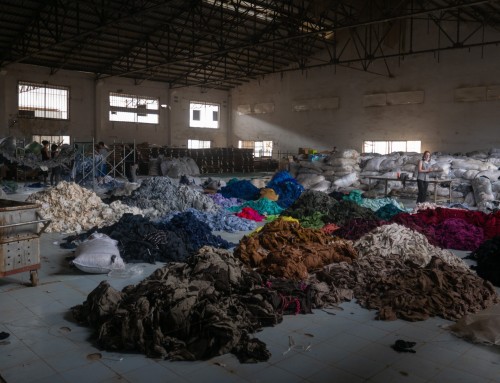Black Friday is typically a time for huge retail spending in the run up to Christmas. But due to a national lockdown across the UK due to the pandemic, Black Friday has been different in 2020, with non essential retailers being forced to close. The UK isn’t alone, with restrictions and closures common across many parts of the world.
It’s an interesting time to consider whether the coronavirus pandemic will lead to lasting purchasing and fashion habits with consumers, and more importantly, what this is likely to mean for fashion sustainability.
Retail sales hit by COVID lockdowns
UK fashion retailer Primark, who does not trade online has reported that lockdowns have cost the business over £2bn. In addition, reduced footfall into stores as more people work from home instead of city centres has hit the business hard. As well as impacting their bottom line, they’ve also reported shifting habits in the types of things people buy, with sales of office wear reduced and sales of loungewear steadily increasing. As there won’t be a traditional party wear season in 2020, this trend is expected to continue – an unplanned shift for retailers from traditional collections.
Online retailers have seen huge sales increases
As expected, online retailers have filled the space vacated by forced closures of brick-and-mortar retail stores, with fast fashion retailers using Black Friday in particular to promote huge discounts and spending. Even recent scandals surrounding Boohoo’s factories have not stopped demand for fast fashion, with sales actually rising by 45% during the pandemic for Boohoo. Even in lockdown, the consumer desire for fast fashion seems unstoppable.
But are things finally changing?
Perhaps. This Black Friday, online retailer Pretty Little Thing ran an attention-grabbing 99% off sale. And while many consumers took advantage of this offer, criticism was fierce on platforms such as Twitter, with many users and consumers highlighting the environmental and sustainability ‘race to the bottom’ caused by garments being sold for 8p. As we all know, the over production and consumption of fast fashion is contributing to irreversible environmental damage across the globe, clothes being sold for such low prices highlights this.
But while sales continue to increase online, there are more voices loudly questioning and criticising fast fashion practices. Could this finally be a moment where consumers are more willing to tackle sustainability in fashion?
This is a huge opportunity for real innovation
There have been many discussions on how COVID will alter society, business and behaviours. And it’s unlikely fashion will escape the effects of such a major world-wide event.
As well as consumers becoming more sustainably aware, there is hope that they will permanently shift to buying better quality and long lasting pieces, rather than quick fashion fixes that ultimately end up in landfill. Clothes that are meaningful, rather than simply cheap will gain greater prominence. Criticism of Pretty Little Thing’s sale, as just one example offers hope that consumer attitudes are changing, and this is essential to addressing fashion sustainability.
There’s also the chance for fashion brands, marketers and retailers to embrace opportunities post-COVID. Disruption always generates opportunities, and COVID is no different. Innovation, a commitment to sustainability and changes in past behaviours are all possible if brands are willing to embrace and communicate these to consumers.
The real question is, will both sides of the fashion industry embrace this opportunity?
Textile Consult is a management and training consultancy operating worldwide. We’re currently working with clients to find the best sustainable solutions in the textile industry. Contact us to find out how we can advise your business on sustainable textile solutions.


